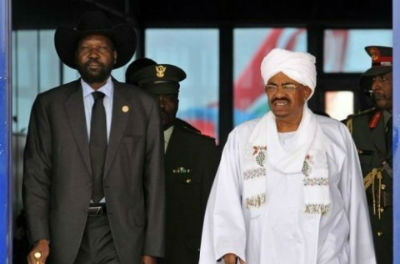 By: Philips Al-Ghai
By: Philips Al-Ghai
May 15, 2013 (SSNA) — With the murder of Chief Kuol Deng Kuol as the latest in the series of Sudan’s continued aggression against S. Sudan, it is time that Juba draws curtain on soft stances, and develops relevant countermeasures against Khartoum –even if it means another war. It is worrying that S. Sudan might not stand a chance of getting fair justice with the current status quo within the United Nations and the African Union. The approach employed by both organizations over the last few years, in an effort to forge peaceful solutions between the two countries, seems to fortify this.
In the progression of events since the independence of S. Sudan, the position of UN and AU has been hypocritical, and inherently redundant. Customarily, both have been [and still continue to] turning a blind eye to Sudan Army’s aerial bombings and ground assault deep within S. Sudan. However, when SPLA seized Panthou (Heglig) in April last year, they abruptly found guts to ‘condemn it with the strongest terms possible’. Outraged, they swamped the media barely a few hours after the incident. Interestingly, capture of Panthou was a continuation of Sudan Army’s prior attack on SPLA positions in Unity State, but neither the UN nor the AU was keen to acknowledge that. Ban Ki Moon was lightening-quick to describe it as “an infringement on the sovereignty of Sudan and a clearly illegal act.” Assuming that Heglig is part of Sudan, the UN Chief simply implied that only SAF’s attack within S. Sudan territory is deemed ‘legal’. As if that was not enough, he went on to give ‘an order’ to the president of a sovereign state! Make no illusion that he’d take such crap to Bashir. He has never done, and will never do. Never.
Moreover, the same UN had been whining around, speculating that S. Sudan supports Sudan rebels; a scapegoat currently used by the bloody warmongers in the North to justify their destabilization campaigns in the South. Yet they were lip-tied when the whole proxy militia unit, used by Khartoum, returned to the South in a broad daylight! Didn’t they hear what they were doing in the North? I doubt.
The AU, on the other hand, looks comfortable with the hide-and-seek games that Khartoum has been playing throughout the negotiations. Khartoum has been breaching agreements on their faces, one after another, and Chief Kuol’s murder being the latest attempt to re-derail the Abyei referendum. Still they are as meek as lambs about it. As usual, Khartoum, intriguingly, is allowed to go scot-free. Why don’t they transfer the dispute to the Permanent Court of Arbitration if they are a bunch of gutless cowards who can’t afford seeing Bashir in the eye? Perhaps they are waiting for the breaking point when S. Sudan wouldn’t be able to influence any outcome, one is tempted to think. When that will be is another question.
Regrettably, both organizations have again and again proved too critical toward Juba yet they, blatantly, fail to hold Khartoum accountable for its incessant aggression and breach of agreements. This only portrays them as inadmissible, absurd, and void of impartiality. It suggests that S. Sudan’s perceived military and economic inferiority is being used as a potential fault-line that can be exploited to solve the problem. This can only be seen as betrayal against S. Sudan.
It is also astounding that, even in the presence of United Nations Interim Force for Abyei [in Abyei], people still lose lives to SAF and their Misseriya arab militias. The UN and the AU once again pretend not to know anything about it. Apparently, if you give it a closer look, the lines between the UN, the AU, and the bloodthirsty Jihadists in the North have blurred. Their credibility has waned drastically. S. Sudan’s complains are reduced to a toothless-cobra’s hiss. One wonders whether S. Sudan will ever get fair justice with the current set up within the UN and the AU.
This leaves the government of S. Sudan with only one option: take a stern stance on Abyei and other disputed areas; negotiate when everyone is ready to, and leave the negotiation table when everyone else leaves. It is also necessary that corresponding echoes be unequivocally sent out when Sudan blows war or peace trumpets. That would balance the equation. Otherwise, S. Sudan’s sovereignty is at stake if it is left in the hands of the Bashir-shy UN and AU.
Philips Al-Ghai can be reached at [email protected]

